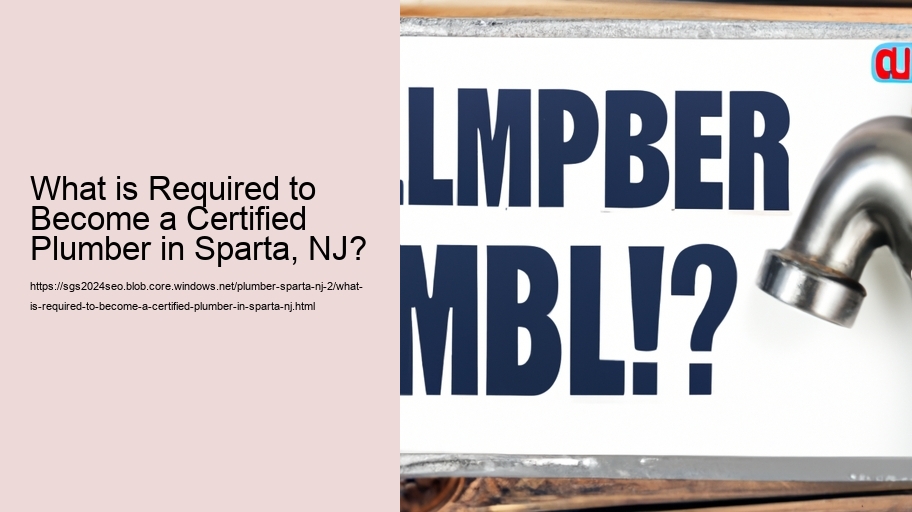Becoming a certified plumber in Sparta, NJ, or indeed anywhere in the United States, requires a combination of education, hands-on experience, and obtaining the necessary licenses. What is the Average Cost of Hiring a Plumber in Sparta, NJ? . Plumbing is an essential trade that ensures the safety, sanitation, and functionality of water systems in homes, businesses, and public buildings. As such, the path to becoming a certified plumber is designed to ensure that individuals entering the field are well-equipped with the knowledge and skills necessary to perform their duties effectively.
To begin with, aspiring plumbers need a solid foundation in basic education. Most plumbing apprenticeships and vocational training programs require a high school diploma or its equivalent as a minimum educational prerequisite. Courses in mathematics, physics, and blueprint reading are particularly beneficial as they provide a groundwork in the skills required for plumbing work. Mathematics and physics are essential for understanding the complexities of water pressure and flow, while blueprint reading is crucial for interpreting building plans and ensuring that plumbing systems are installed correctly.
After meeting the basic educational requirements, the next step is typically to enroll in a plumbing apprenticeship program. These programs are designed to provide a combination of classroom instruction and on-the-job training. In New Jersey, apprenticeships are often offered through trade unions, local community colleges, or technical schools. The apprenticeship period usually lasts four to five years, during which apprentices work under the supervision of experienced plumbers. This hands-on experience is invaluable, as it allows apprentices to apply the theoretical knowledge gained in the classroom to real-world scenarios, learning the intricacies of the trade and the various challenges they may encounter.
In addition to completing an apprenticeship, aspiring plumbers in New Jersey are also required to pass a licensing exam. The state of New Jersey mandates that all plumbers obtain a license to work legally. The licensing process involves passing an examination that tests knowledge of local plumbing codes, safety regulations, and the technical aspects of plumbing work. This ensures that all licensed plumbers have a standardized level of competency and are familiar with the regulations specific to New Jersey.
Continuing education is another important aspect of maintaining a plumbing license in Sparta, NJ. The plumbing industry is constantly evolving, with new technologies and methods being developed. Licensed plumbers are often required to complete a certain number of continuing education hours to stay updated on the latest advancements and changes in plumbing codes and standards. This commitment to ongoing learning ensures that plumbers remain competent and capable of providing high-quality service to their clients.
Finally, many plumbers choose to join professional organizations or unions, such as the United Association of Journeymen and Apprentices of the Plumbing and Pipe Fitting Industry. Membership in these organizations can provide additional resources, networking opportunities, and support for professional development.
In conclusion, becoming a certified plumber in Sparta, NJ, involves a comprehensive process of education, apprenticeship, and licensing. This rigorous pathway ensures that plumbers are well-prepared to meet the demands of the profession and provide safe, efficient, and reliable services. As the backbone of modern sanitation and water supply systems, plumbers play a crucial role in maintaining public health and quality of life, making their certification process vital to ensuring the highest standards in the industry.
